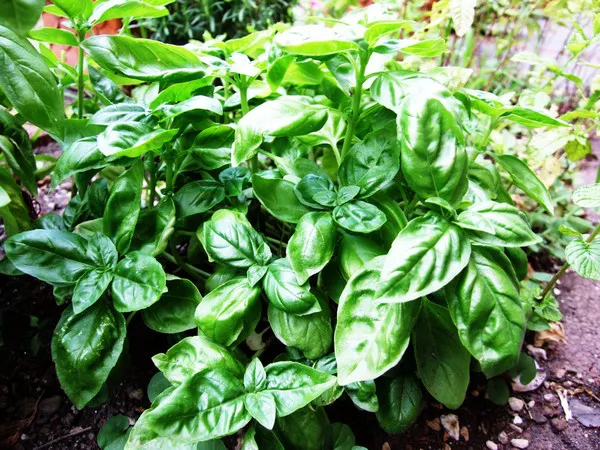Maintaining a flourishing vegetable garden requires a delicate balance between nurturing your plants and safeguarding them from pesky invaders. Pests can pose a significant threat to your vegetable crops, but resorting to chemical solutions isn’t the only answer.
Companion Planting: Nature’s Pest-Repellent Partnerships
Companion planting is a time-tested technique that involves strategically placing plants to enhance each other’s growth and, importantly, repel pests. Certain plants emit natural compounds or scents that act as deterrents for pests. For instance, planting marigolds alongside vegetables can help repel nematodes. Basil, when planted near tomatoes, can deter pests like aphids and hornworms. By understanding the synergies between different plants, you can create a natural pest-repellent environment in your vegetable garden.
Beneficial Insects: The Allies Against Unwanted Pests
Encouraging beneficial insects is a natural and sustainable way to repel pests. Ladybugs, lacewings, and predatory beetles are natural predators of common garden pests like aphids and mites. By avoiding the use of broad-spectrum pesticides, you create an environment that supports the well-being of these helpful insects. Attracting pollinators, such as bees and butterflies, also contributes to a balanced ecosystem. The presence of beneficial insects not only keeps pest populations in check but also promotes overall garden health.
Essential Oils: Aromatic Defense Against Pests
Harnessing the power of essential oils can be an effective and aromatic way to repel pests. Oils such as neem, peppermint, and citronella are known for their insect-repelling properties. Creating a natural pest-repellent spray by diluting these oils with water allows you to apply it directly to your plants. This method not only deters pests but also adds a pleasant fragrance to your garden. Experiment with different essential oils to find the scents that work best for repelling specific pests in your region.
Garlic and Onions: Culinary Guardians Against Pests
The strong aroma of garlic and onions serves as a natural deterrent for many pests in the vegetable garden. Planting garlic and onions alongside your crops can help repel insects like aphids, spider mites, and even larger pests like rabbits. Consider incorporating these aromatic plants throughout your garden or creating a protective border. Additionally, garlic and onion sprays can be applied to plants as a foliar treatment to boost their pest-repelling properties.
Diatomaceous Earth: Gentle Yet Effective Pest Barrier
Diatomaceous earth, made from fossilized diatoms, is a natural and non-toxic substance that acts as a formidable barrier against crawling insects. When applied around the base of plants or on affected areas, diatomaceous earth pierces the exoskeletons of insects, causing them to dehydrate and perish. This method is particularly effective against pests like slugs, snails, and crawling beetles. Regularly reapply diatomaceous earth, especially after rain or irrigation, to maintain its effectiveness.
Homemade Insecticidal Soap: A Gentle Touch for Pest Repellent
Creating a homemade insecticidal soap is a gentle yet potent solution for repelling soft-bodied pests like aphids, mites, and whiteflies. Mixing a mild soap with water and applying the solution to affected plants disrupts the insect’s cell membranes, leading to dehydration and control of the infestation. This natural insecticidal soap is safe for plants and beneficial insects when used according to recommended guidelines, making it an eco-friendly alternative to chemical pesticides.
Cayenne Pepper and Spicy Solutions
The pungent nature of cayenne pepper can be employed to create natural pest deterrents. Sprinkling cayenne pepper or a mixture of hot peppers and water on and around plants can help repel pests like squirrels, rabbits, and certain insects. The spicy nature of these solutions creates an inhospitable environment for pests without causing harm to your plants. Be cautious when using spicy solutions, and test on a small portion of a plant before widespread application to ensure it does not negatively impact your vegetation.
Row Covers: Physical Barriers for Pest Defense
Floating row covers provide a physical barrier against a variety of pests, preventing them from reaching your plants. These lightweight fabric covers permit sunlight and water to reach the plants while creating a shield against pests like cabbage moths, aphids, and beetles. Floating row covers are particularly useful for safeguarding young plants and seedlings. Ensure the edges of the covers are securely anchored to prevent pests from finding entry points, ensuring comprehensive protection for your vegetable garden.
Beer Traps for Slugs: A Natural End to Slimy Pests
For gardeners battling persistent slug infestations, beer traps offer a natural and effective solution. Bury shallow containers in the soil at ground level and fill them with beer. Slugs are attracted to the yeast in the beer, crawl into the containers, and drown. Regularly empty and refill the beer traps to maintain their effectiveness. This method is safe for plants and wildlife, providing an environmentally friendly approach to slug control.
Crop Rotation: Disrupting Pest Cycles Naturally
Implementing a crop rotation strategy is a natural way to disrupt the life cycles of pests and prevent the buildup of specific soil-borne pathogens. By rotating the placement of crops annually, you make it more challenging for pests to establish themselves and reduce the risk of soil-borne diseases. Certain crops can also serve as natural pest repellents for others. For example, planting marigolds in one season can help control nematodes, providing a natural defense for subsequent crops.
Conclusion
Repelling pests in your vegetable garden can be achieved through a combination of natural methods that work in harmony with the environment. From companion planting to essential oils, each strategy plays a role in creating a garden that thrives while deterring unwanted visitors. Experiment with different approaches, observe the unique needs of your garden, and celebrate the success of a pest-resistant vegetable garden that reflects the power of natural repellent methods.


